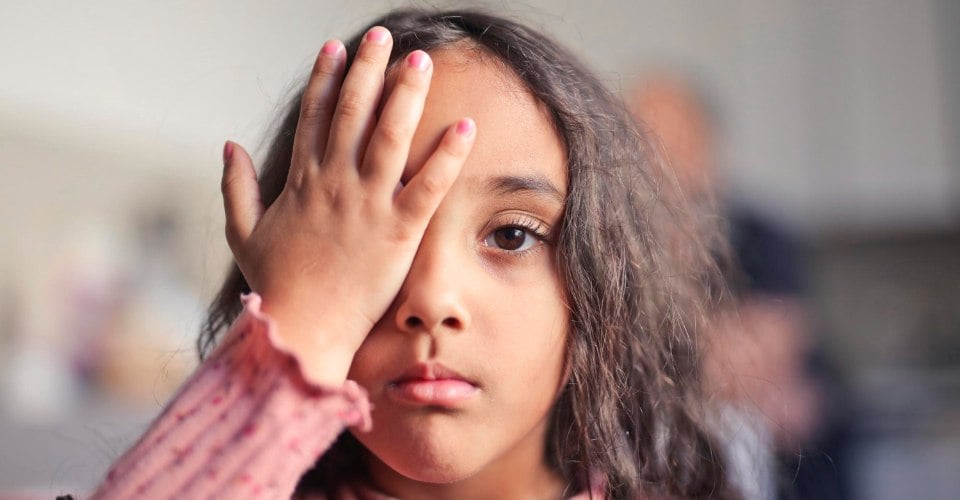When considering pets and their emotions, dogs often come to mind as expressive companions known for their unwavering loyalty, boundless joy, and sometimes visible sadness. However, the depths of feline emotions are frequently overlooked. Cats, in contrast, are often perceived as enigmatic beings, keeping their feelings hidden. They are viewed as aloof, independent, and disinterested, rarely showing much beyond an occasional purr or a flick of the tail. Recent research, however, challenges this narrative, suggesting that cats may possess far more emotional complexity than previously thought. A particularly intriguing question has emerged: do cats grieve?
Unveiling Feline Emotions: Beyond the Stereotypes
When considering pets and their feelings, dogs often come to mind as more expressive creatures known for their unwavering loyalty, boundless joy, and sometimes visible sadness, but rarely the depths of feline emotions. Cats, in contrast, are often seen as enigmatic beings, keeping their emotions hidden. They are viewed as aloof, independent, and uninterested, seldom displaying anything beyond the occasional purr or flick of the tail. However, recent studies are challenging this view, suggesting that cats may be far more emotionally complex than previously thought. One intriguing question has emerged: do cats grieve?
For many years, the emotional lives of cats have been misunderstood or overlooked. Unlike dogs, whose feelings are often evident, cats are considered solitary and insensitive due to their unique behavior. While dogs may whimper, wag their tails, or even shed tears in response to human emotions, cats tend to exhibit fewer outward signs, leading some to believe they lack a comparable emotional range.
Yet, a growing body of research into animal cognition and emotions offers a new perspective. Studies reveal that felines can form deep bonds with their human companions and other animals in the household. They recognize their names, respond to human emotions like happiness or sadness, and demonstrate behaviors indicating an understanding of social relationships. But what happens when a significant member of their social group—a pet—dies?
The Study That Changed Perceptions: Grieving Cats
A groundbreaking study has uncovered that cats may experience mourning when a fellow pet in their household passes away. A total of 412 cats were observed in this experiment, each having lost a companion—whether another cat or a different species like a dog. The findings were remarkable: bereaved cats displayed behavioral changes akin to mourning observed in dogs.
These feline emotions were evident in reduced common activities. Cats played less, ate less, and spent more time hiding or seeking comfort from their human caregivers. The study also revealed a strong correlation between the surviving cat’s bond with the deceased pet and the intensity of their grieving behaviors. Cats with particularly close attachments to their lost companions exhibited more pronounced signs of sadness, such as isolating themselves or showing indifference.
The Behavioral Patterns of Grieving Cats
The particular behaviors displayed by grieving cats align with what we might anticipate from any being coping with loss. For instance, cats that were once playful and engaging might suddenly become lethargic and show little interest in their environment. A previously friendly feline could begin withdrawing, spending more time in solitude or hiding in quiet, secluded areas.
Similar to grieving dogs, cats may exhibit behaviors like reduced sleep, decreased appetite, and increased reliance on their human caregivers following the loss of a companion. These observed behaviors suggest that cats do experience grief, though their reactions may differ from those of other species.
Human Caregivers’ Role in Feline Grief
An intriguing element of this study was the role human caregivers played during their cats’ grieving period. The emotional state of the caregiver had a significant impact on the cat’s behavior. Cats were more likely to display distress symptoms when living with a person who mourned openly. This raises an interesting question: do cats perceive grief from humans or grieve for their companions?
Cats are renowned for their sensitivity to human emotions. They often pick up on subtle behavioral changes and respond in kind. In some cases, the “grief” displayed by the cat may mirror the emotions of its owner rather than stem from missing a lost animal companion. This doesn’t diminish the cat’s response but highlights the profound and deeply rooted bonds between humans and their feline family members.
What Is The Complexity Of Feline Mourning?
Cats’ ability to grieve challenges long-standing beliefs about their emotional depth, urging us to rethink their social and emotional complexity. This realization not only reshapes how we view feline behavior but also prompts introspection and a more compassionate response to their needs. Recognizing that a cat may mourn opens new avenues for offering support and care during difficult times.
If a cat shows distress after losing a companion, there are ways to help it cope with grief. Providing extra attention, sticking to routines, and creating a comforting environment can be beneficial. In some cases, introducing a new pet may help fill the void left by the loss, whether due to death or separation. However, this introduction should be handled gently and gradually, ensuring the grieving cat is ready for the change.
Can We Determine That Cats Grieve?
The behavior of cats in grief mirrors that of other animals, including humans. For instance, a grieving cat may become more vocal, seeking attention and reassurance from its human companions. They may also lose interest in food, avoid playtime, or alter their sleeping patterns. In some cases, cat owners have observed their feline friends following them around more frequently or sleeping closer to them at night.
Such behaviors are often associated with stress or anxiety; however, after losing a close companion, they might be better understood as signs of mourning. Cats, like most animals, thrive on stability and routine. When they lose an animal partner, the resulting changes can provoke unusual behaviors, much like the emotional responses people experience during bereavement.
The Significance of the Strength of the Bond
The strength of the bond between a surviving cat and the deceased pet plays a significant role in how cats experience grief. If cats were especially close, the surviving cat may show signs of distress more often. This can result in them avoiding activities they once enjoyed or spending more time in areas where they used to be with their lost companion.
In contrast, cats that had a less strong bond may not exhibit as many visible signs of grief. This mirrors human experiences of grief, where the closeness of the relationship with the deceased affects the mourning process.
How to Help a Grieving Cat
Feline emotions can be complex, and just like humans, cats can grieve too. Understanding this is the first step toward supporting them through this difficult time. While there’s no one-size-fits-all approach, there are several strategies that can help a grieving cat feel more comfortable.
Consider a New Companion:
Avoid rushing into getting another pet, as the surviving cat needs time to adjust to the loss. However, when the time is right, a new companion can bring healing and restore peace in the home.
Maintain Routine:
Cats are creatures of habit, and keeping their daily routine intact offers stability during times of distress. Ensure regular feeding times, play sessions, and other consistent activities.
Provide Comfort:
Show your cat love and attention, spending extra time together. Play gently, and ensure they have access to their favorite resting spots. Comfort items like cozy blankets or cherished toys can also help them feel secure.
Monitor Behavior:
Closely observe your cat’s behavior. If you notice prolonged signs of distress, changes in eating or sleeping patterns, consult a veterinarian. Long-term grief may lead to health problems, and professional advice might be necessary.
The Emotional Intelligence of Cats
Feline emotions have often been underestimated, particularly regarding cats’ ability to grieve. This research into cats’ grief expands our understanding of their emotional depth and challenges how we relate to and care for them. Researchers suggest that cats are not just aloof or independent, but also sensitive, social animals with complex feelings.
Final Thoughts: Nurturing the Bond
The bond between human families and their feline friends is deep and unparalleled. When we recognize that cats can experience grief, it strengthens this connection, especially during difficult times when they need our attention. It is our responsibility to ensure that our feline companions live happy, healthy lives by understanding their emotions, making their lives emotionally rewarding.
Cats express emotions that help us see them as sentient beings, grieving the loss of a friend or reacting to their owners’ feelings during such times. As we explore their emotions, it becomes clear that cats are more than just pets; they are integral members of our families, deserving of compassion and kindness, just like any loved one during tough moments.






















Leave a Reply
You must be logged in to post a comment.